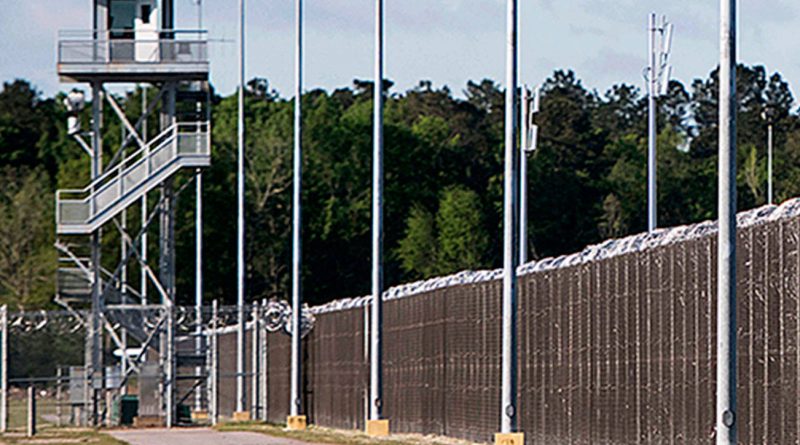Canada’s New Solitary Confinement Bill: Genuine Reform or Misleading Rebranding?
While the federal government says its new solitary confinement bill betters inmates’ situations, many question its true nature.
Key Actors:
- Federal Government
- Ralph Goodale – Public Safety Minister
- B.C. Supreme Court
- B.C. Appeal Court
- B.C. Civil Liberties Association
- John Howard Society of Canada
- Ontario Appeal Court
- Sen. Kim Pate
Definition
Solitary confinement is the practice of confining an inmate in a small, personal cell, where they receive minimal human interaction. It is typically used as a punishment for inmates who display dangerous behaviour that may result in harm to themself or others within the prison.
Current Laws and Issues
During solitary confinement, or officially “Administrative Segregation,” inmates may only spend two hours outside of their confinement cell. In this time, no meaningful interaction with others is given and there is no access to rehabilitation or mental health supports. There is no limit to the possible number of days in a confinement cell. On any given day, nearly 400 prisoners are held in solitary confinement across Canada.
Advocates and human rights organisations take issue with the current system, particularly with the indefinite amount of possible solitary confinement; many see prolonged confinement (defined as greater than 15 days) as a violation of people’s constitutional rights to life, liberty, and security. Additionally, studies have shown that prolonged confinement can have detrimental effects to mental and psychological health, with several inmates who underwent such experiences developing anxiety, depression, or suicidal ideation. Many activists point to Ashley Smith, a 19 year old who took her own life via strangulation while being watched, as a key example. At the time of her death, she had been in solitary confinement for more than 1000 days.
Bill C-83 and Issues
Ashley Smith’s death led to a coroner’s inquest in 2013 that resulted in several recommendations, including the prohibition of indefinite solitary confinement. In response to the inquest, the federal government proposed Bill C-83, which seeks to reform the current segregative system and replace the confinement cells with Structured Intervention Units, with the focus now being intervention instead of segregation. The new system would allow inmates up to four hours outside the cell, including at least two hours of human interaction. In addition, these inmates are also supposed to be seen daily by health professionals and patient advocates.
While advocates agree that replacing the old system is a step in the right direction, many question whether the new system brings any meaningful change at all. One issue is that the bill still does not place a limit on the amount of time one can be solitarily confined. Another, as Senator Kim Pate points out, is the question of where the government will find time and resources to replace or restructure the solitary confinement cells.
Court Rulings
A ruling from the B.C. Supreme Court in January 2018 declared that the Canadian government was violating the constitution by placing people, especially those with mental illness or Indigenous people, in solitary confinement for prolonged periods of time. In November 2018, the Canadian government appealed the court’s ruling, explaining that the problems are understood, however, the punishment is used as a last resort and therefore should remain. Many anti-prolonged confinement advocates criticised the government for staying adamant against the banning of prolonged solitary confinement. Later, in June 2019, a B.C. Appeal Court voted unanimously to confirm that prolonged solitary confinement was a violation of one’s constitutional rights. The Canadian government may choose to overturn the Appeal Court’s ruling, in which case it will be reviewed by the Canadian Supreme Court. Meanwhile, an Ontario Appeal Court ruling in March 2019 concurred with the B.C. Courts’ conclusion; it ordered the Canadian government to place a 15 day limit on the punishment, in addition to allocating $20 million to fund additional mental health support.
Bill C-83 was reviewed and the Senate proposed alterations to the bill that would satisfy the demands of the anti-prolonged confinement advocates. Despite criticism, the Federal government rejected these alterations before the bill was passed on June 21, 2019. With the Canadian government refusing to relent, the struggle to uphold inmates’ rights continues.
Bibliography
2018 BCSC 62 British Columbia Civil Liberties Association v. Canada (Attorney General). https://www.bccourts.ca/jdb-txt/sc/18/00/2018BCSC0062.htm#_Toc503869113. Accessed 31 July 2019.
“B.C. Court of Appeal Confirms Prolonged Solitary Confinement Is Unconstitutional in Canada | The Star.” Thestar.Com, https://www.thestar.com/vancouver/2019/06/24/bc-court-upholds-decision-striking-down-canadas-solitary-confinement-laws.html. Accessed 31 July 2019.
“B.C. Supreme Court Ruling on Solitary Confinement Challenged by Feds | The Star.” Thestar.Com, https://www.thestar.com/vancouver/2018/11/13/bc-supreme-court-ruling-on-solitary-confinement-challenged-by-feds.html. Accessed 31 July 2019.
British Columbia Civil Liberties Association v Canada (Attorney General). p. 62, http://canlii.ca/t/hprxx. Accessed 31 July 2019.
Canada’s New Solitary Confinement Bill Makes It Easier to Put Inmates in Isolation, Senator Says – National | Globalnews.Ca. 5 May 2019, https://globalnews.ca/news/5241955/canada-solitary-confinement-bill-inmates-isolation/.
“Civil Liberties Lawyers Call on Canada to Drop Appeal of Solitary Confinement Ruling | The Star.” Thestar.Com, https://www.thestar.com/vancouver/2019/01/07/civil-liberties-lawyers-call-on-canada-to-drop-appeal-of-solitary-confinement-ruling.html. Accessed 31 July 2019.
Court of Appeal for Ontario Sets 15-Day Cap on Solitary Confinement | Globalnews.Ca. 28 Mar. 2019, https://globalnews.ca/news/5106679/ontario-court-cap-solitary-confinement/.
Feb 09, CBC Radio ·. Posted:, and 2019 12:00 PM ET | Last Updated: February 8. “Months Locked in a Tiny Box — How Solitary Confinement Can Erode Mental Health | CBC Radio.” CBC, https://www.cbc.ca/radio/quirks/feb-9-2019-psychology-of-solitary-confinement-mind-over-genes-genocide-and-climate-change-and-more-1.5008739/months-locked-in-a-tiny-box-how-solitary-confinement-can-erode-mental-health-1.5008744. Accessed 31 July 2019.
“Liberals to Reject Senate Changes to Solitary Confinement Bill.” London, 18 June 2019, https://london.ctvnews.ca/mobile/liberals-to-reject-senate-changes-to-solitary-confinement-bill-1.4471758.
Ottawa Ordered to Pay $20M for Putting Mentally Ill Inmates in Solitary Confinement | Globalnews.Ca. 26 Mar. 2019, https://globalnews.ca/news/5097529/ontario-solitary-confinement-lawsuit/.
“Solitary Confinement in Canada & Bill C-83.” Solitary Confinement in Canada & Bill C-83, http://certificate.queenslaw.ca/blog/solitary-in-canada-what-does-c-83-mean. Accessed 31 July 2019.

